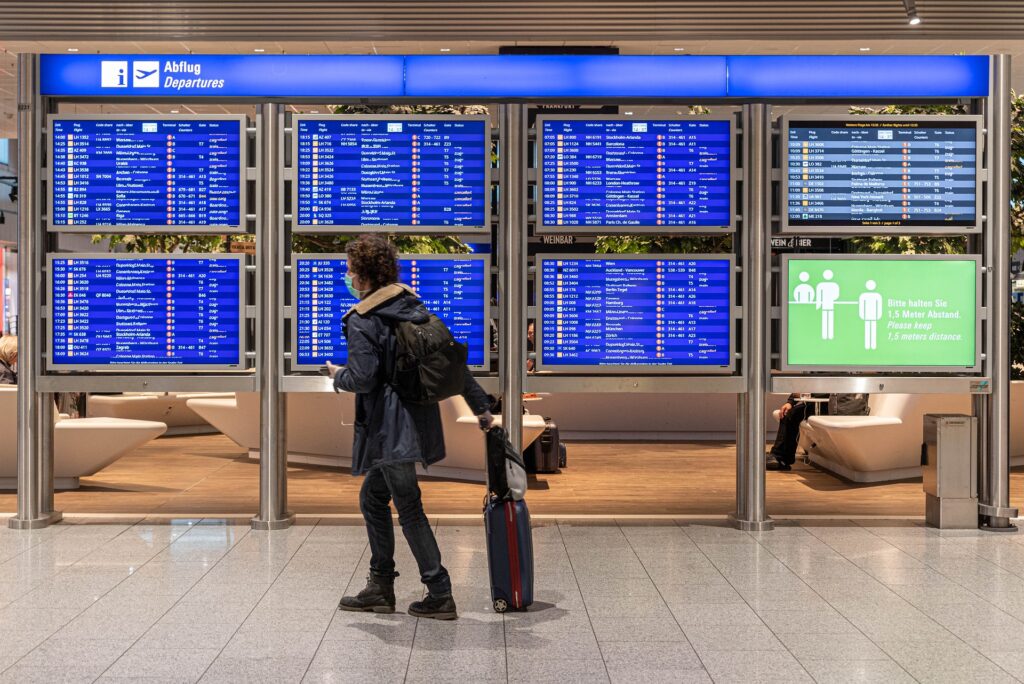The International Air Transport Association (IATA) has unveiled the results of its 2021 Global Passenger Survey (GPS).
According to IATA, the results delivered two main conclusions: that passengers want to use biometric identification if it expedites travel processes; and passengers want to spend less time queuing.
Nick Careen, senior vice president for operations, safety and security, IATA, said, “Passengers have spoken and want technology to work harder, so they spend less time ‘being processed’ or standing in queues. And they are willing to use biometric data if it delivers this result. Before traffic ramps up, we have a window of opportunity to ensure a smooth return to travel post-pandemic and deliver long-term efficiency improvements for passengers, airlines, airports and governments.”
Key findings for biometric identification:
- 73% of passengers are willing to share their biometric data to improve airport processes (up from 46% in 2019).
- 88% will share immigration information prior to departure for expedited processing.
- Just over a third of passengers (36%) have experienced the use of biometric data when traveling. Of these, 86% were satisfied with the experience.
- Data protection remains a key issue with 56% indicating concern about data breaches. And passengers want clarity on who their data is being shared with (52%) and how it is used/processed (51%).
Kind findings from queuing:
- 55% of passengers identified queuing at boarding as a top area for improvement.
- 41% of passengers identified queuing at security screening as a top priority for improvement.
- 38% of passenger identified queuing time at border control/immigration as a top area for improvement.
With additional document checks for Covid-19, processing time at airports is taking longer. Pre-Covid-19, the average passengers spent 1.5 hours in travel processes (check-in, security, border control, customs, and baggage claim). Current data indicates that airport processing times have ballooned to three hours during peak time with travel volumes at only about 30% of pre-Covid-19 levels. The greatest increases are at check-in and border control (emigration and immigration) where travel health credentials are being checked mainly as paper documents. This exceeds the time that passengers want to spend on processes at the airport. The survey found that:
- 85% of passengers want to spend less than 45 mins on processes at the airport if they are traveling with only hand luggage.
- 90% of passengers want to spend less than one hour on processes at the airport when traveling with a checked bag.
IATA, working with industry stakeholders, has two mature programs which can support a successful ramping-up of aviation post-pandemic and provide travelers with the expedited experience they are demanding.
IATA Travel Pass is a solution to manage the complex array of travel health credentials that governments require. The app offers a safe and secure way for travelers to check the requirements for their journey, receive test results and scan their vaccine certificates, verify that these meet the destination and transit requirements and share these effortlessly with health officials and airlines prior to departure and using e-gates. This will reduce queuing and congestion for document checks—to the benefit of travelers, airlines, airports and governments.
One ID is an initiative that is helping transition industry toward a day when passengers can move from curb to gate using a single biometric travel token such as a face, fingerprint or iris scan. Airlines are strongly behind the initiative. The priority now is ensuring there is regulation in place to support the vision of a paperless travel experience. One ID will not only make processes more efficient for passengers, but also allow governments to utilize valuable resources more effectively.
“We cannot just revert to how things were in 2019 and expect our customers to be satisfied. Pre-pandemic we were preparing to take self-service to the next level with One ID. The crisis makes its twin-promises of efficiency and cost-savings even more urgent. And we absolutely need technologies like IATA Travel Pass to re-enable self-service or the recovery will be overwhelmed by paper document checks. The GPS results are yet another proof point that change is needed,” said Careen.
IATA’s GPS is based on 13,579 responses from 186 countries, providing insight into what passengers would like from their air travel experience.


